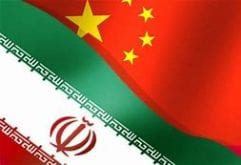Amnesty – Two labour rights activists who were rearrested after speaking out about beatings and other abuse they suffered in detention last year are at grave risk of further torture, Amnesty International has warned.
Esmail Bakhshi and Sepideh Gholian were violently arrested in Ahvaz, Khuzestan province, on 20 January in apparent reprisal for talking publicly about the torture they have said they endured in detention during November and December 2018, provoking a public outcry.
“There are real fears that Esmail Bakhshi and Sepideh Gholian could be facing a second round of torture after their rearrest. The timing of their arrest strongly suggests it is part of a sinister attempt to silence and punish them for speaking out about the horrific abuse they suffered in custody. The authorities must release them immediately and unconditionally, ensure their allegations of torture are independently investigated and that those responsible are brought to justice,” said Philip Luther, Research and Advocacy Director for the Middle East and North Africa at Amnesty International.
The timing of their arrest strongly suggests it is part of a sinister attempt to silence and punish them for speaking out about the horrific abuse they suffered in custody.
The activists were first arrested on 18 November 2018 after participating in a peaceful gathering in front of the governor’s office in Shush, Khuzestan, and seeking to meet with officials to discuss the unpaid wages of several thousand workers at the Haft Tappeh sugar cane industrial complex.

Following their release on bail in mid-December, Esmail Bakhshi and Sepideh Gholian gave Amnesty International a harrowing account of the torture they suffered at the hands of security police and ministry of intelligence officials in both Shush and Ahvaz. They said they had been relentlessly beaten, slammed against a wall and shoved to the ground, as well as being humiliated and threatened with flogging, sexual violence and murder.
Sepideh Gholian told Amnesty International that, during her daily interrogation sessions, which started around 10am and lasted until the early hours of the following morning, intelligence officials repeatedly subjected her to sexual insults, calling her a “whore”, accused her of having sexual relationships with workers and threatened to have her family kill her “in the name of honour”.

Esmail Bakhshi wrote on his Instagram account on 4 January 2019 that, immediately after his arrest, “they [the officials] tortured me until I thought I was going to die and beat me with their fists and kicks so much that I could not move in my cell for 72 hours. I was in so much pain that it even hurt to sleep and today, after nearly two months… I still feel pain in my broken ribs, kidneys, left ear and testicles.”
He added that the officials torturing them also subjected them “to all sorts of heinous sexual profanities”. Esmail Bakhshi ended his post by challenging the minister of intelligence, Mahmoud Alavi, to participate in a live televised discussion with him concerning his torture complaints.
The posts triggered a public uproar about torture in Iranian detention facilities. The authorities initially responded by promising to investigate the torture allegations. State media reported that an official delegation would be sent to Khuzestan province to conduct an investigation and an adviser to the president said that he had issued a clear order for the allegations to be looked into promptly.
However, these promises soon proved hollow. Just days later, key state officials, including the head of the judiciary, the country’s chief prosecutor, and the head of the office of the president, among others, made statements claiming that the allegations of torture raised by Esmail Bakhshi were false. The head of the office of the president also said that they were entitled to file a complaint against Esmail Bakhshi for bringing the Islamic Republic system into disrepute.
On 19 January, just a day before the two activists’ arrest, state TV broadcast the “confessions” that the activists had said were obtained under torture and other ill-treatment. In the videos, Esmail Bakhshi and Sepideh Gholian “confess” to colluding with Marxist and Communist groups outside Iran to orchestrate the overthrow of the political system through organizing strikes and demonstrations by workers.
By broadcasting the forced confessions, the Iranian authorities have flagrantly violated the detainees’ due process rights, including the right to remain silent during interrogation, and sought to depict activists who defend workers’ rights as enemies seeking to overthrow the state.
“If the Iranian authorities truly want to rehabilitate their notorious reputation on torture in detention, they must put in place measures to ensure that detainees are protected from all forms of torture and other ill-treatment while in custody. This includes giving them access to their lawyer from the moment of their arrest and during interrogation and excluding any information extracted through torture from evidence at trial,” said Philip Luther.
“Instead of locking up activists who speak out on torture, the Iranian authorities should be inviting international monitors, including the UN Special Rapporteur on human rights in Iran, to carry out independent inspections of detention facilities.”
Amnesty International is calling on the Iranian authorities to urgently adopt domestic legislation that effectively defines torture as a specific crime and to ratify the Convention against Torture and Other Cruel, Inhuman or Degrading Treatment or Punishment. Iran is one of only 26 states globally that have neither signed nor ratified this convention.
Esmail Bakhshi is a spokesperson for the independent union of workers at the Haft Tappeh sugar cane industrial complex. Sepideh Gholian is a young labour rights activist who works to support the ongoing protests of Haft Tappeh workers. During their first bout of detention they were held in a ministry of intelligence detention centre in Ahvaz, Khuzestan province without access to their lawyers, until mid-December, when they were released on bail.
 Shabtabnews In this dark night, I have lost my way – Arise from a corner, oh you the star of guidance.
Shabtabnews In this dark night, I have lost my way – Arise from a corner, oh you the star of guidance.


